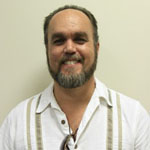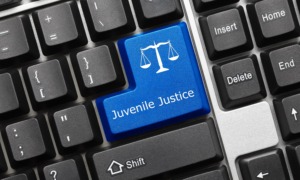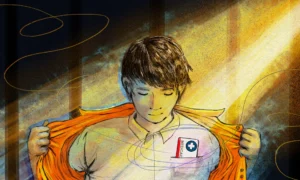 |
I learned to fear black men at a relatively late age. Although I was brought up in south Georgia in a time when open racism was still common, my parents carefully taught me not to judge others based on race. The strongest influence was my father. He had grown up in a small town during the height of southern segregation, and probably had the attitudes that accompanied his upbringing.
That all changed for him when he joined the military though, and he encouraged me to evaluate people based on their behavior, saying that would be a more effective way to decide who I wanted to interact with. I took his advice, and although I was an angry and dangerous young man I wasn’t a racist.
When I went to prison I still had that attitude, but it didn’t take long to meet people who would target me solely based on my race. Racial tensions were strong, and blacks were by far the majority. Of course there were many black men who didn’t adopt these attitudes and behaviors, but there were enough that it made trust (never easy to begin with) even more difficult than usual. It doesn’t take too many times of being attacked based on race to create a pattern.
I knew all along of course that it wasn’t the color of their skin (or mine) that made these men dangerous to me, and I never succumbed to racial hatred. Instead I battled what I considered to be an irrational fear that was easily triggered when I found myself in certain situations. From a peak around 1989 or so my fear has decreased, and since my release from prison it seldom troubles me.
The truth of our society is that a lot of people have similar fears, most with less reason than me. I have found that the greatest fear exists in whites who know few blacks, or only know a few blacks in work or school situations. This is unfortunate on many levels, but most importantly it affects the way blacks are treated by the larger society. This prejudice plays out in jobs, housing, schooling and policing.
The Essence of Innocence: Consequences of Dehumanizing Black Children, published in the Journal of Personality and Social Psychology, examined two groups. The first, 176 urban police officers, were tested for “two distinct types of bias — prejudice and unconscious dehumanization of black people.” Examining the officers’ records, researchers found a correlation between dehumanization (though not prejudice, unconscious or not) and use of force against black children in custody. Researchers theorized that the unconscious dehumanization could have resulted from, “negative interactions with black children,” and “found evidence that overestimating age and culpability based on racial differences” was linked to dehumanization.
The second group was comprised of “254 mostly white, female undergraduates.” The students rated the innocence of individuals varying in race and from infants to age 25. After age 9 they found black children to be “significantly less innocent than other children.” In another test involving descriptions of crimes coupled with photos of perpetrators the students overestimated the age of blacks “by an average of 4.5 years and found them to be more culpable than whites or Latinos, particularly when the boys were matched with serious crimes.”
These differences, as with the police, were found to be largely unconscious and based on dehumanization rather than open prejudice. What underlies these tendencies, and how can we work as a society to uproot them? Of course we must approach our own tendencies individually, but that isn’t enough. The impact, though arising in individuals, is systemic, and requires systemic efforts in the form of rules, policies and procedures to correct for our personal perceptual errors.
As co-author Matthew Jackson, PhD stated, “The evidence shows that perceptions of the essential nature of children can be affected by race, and for black children, this can mean they lose the protection afforded by assumed childhood innocence.”
When asked what practical implications this kind of research suggests, Mikhail Lyubansky, a member of the psychology faculty at the University of Illinois, Urbana-Champaign, and co-editor of Toward a Socially Responsible Psychology for a Global Age, said, “[T]here is a body of literature…that suggests that the more we become aware of our implicit bias, the greater our ability to override it.”
Lyubansky’s own work describes “two pathways through which I think we can move toward less bias. The first is ‘inner work’…this is where we need to learn to slow down, think about what’s going on, and make sure our behavior is in line with our values.
This is especially crucial whenever the situation is highly stressful and the appropriate course of action is unclear, because we know that these are the conditions in which implicit bias is most likely to impact our behavior, as for example with police officers and emergency room doctors. Finally, he offers, “It’s a cliche, but…knowledge is power. We cannot change that which we are not aware of.”
The second way, according to Lyubansky, is through systems change, the changing of societal institutions. “When communities set up restorative systems,” Lyubansky reflects, “they create a new ‘normal’ for how we relate to each other.”





























